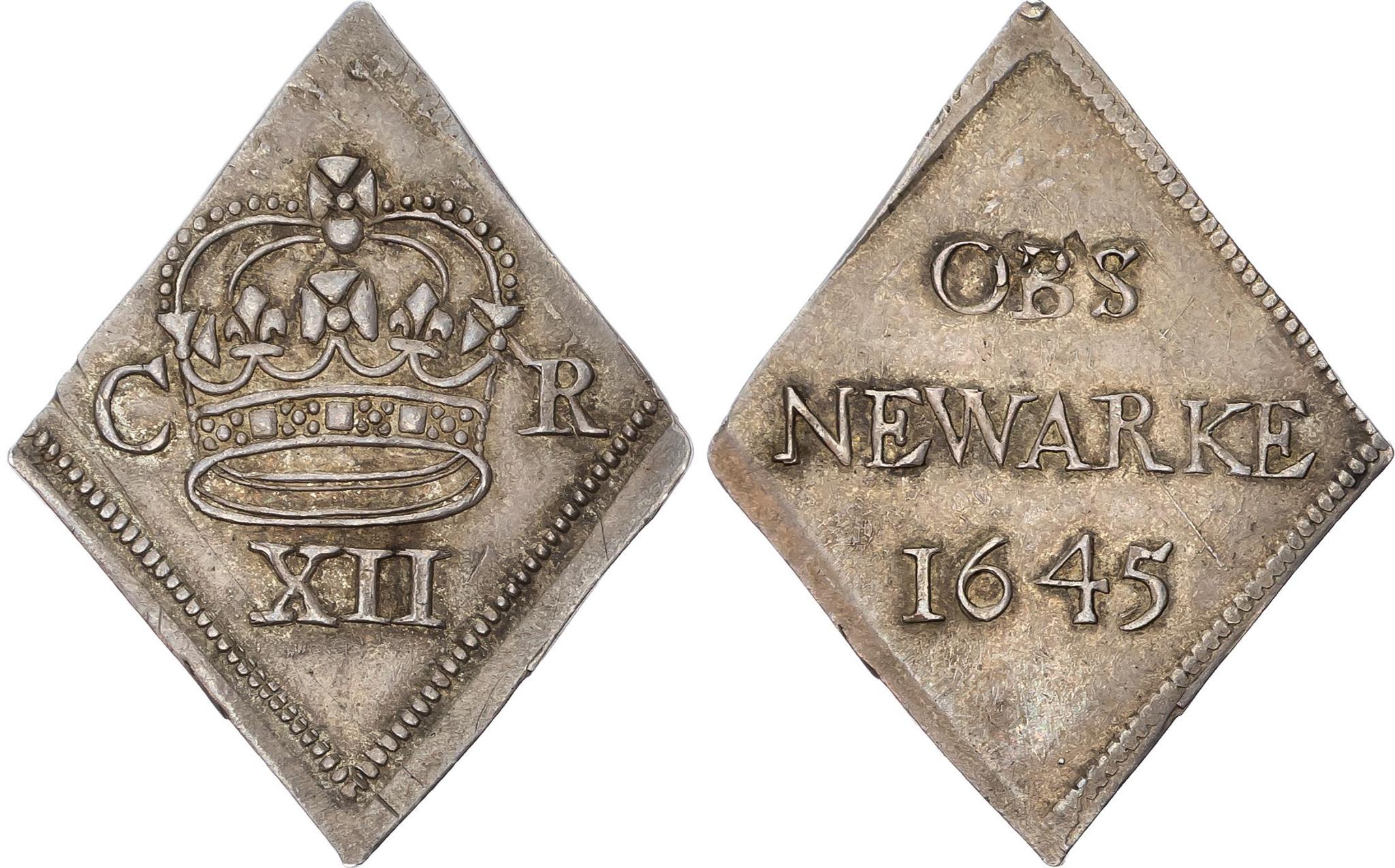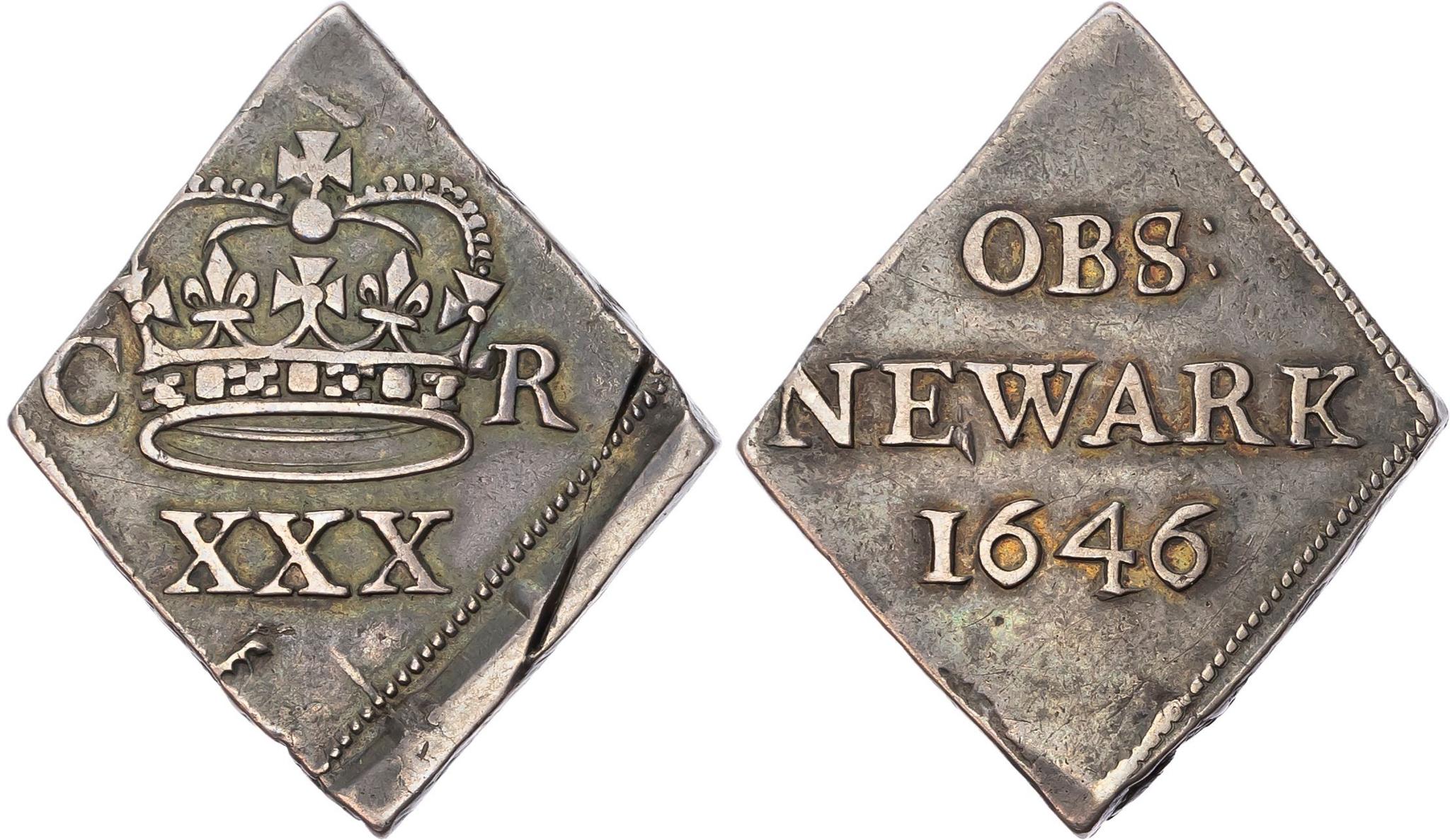Rare civil war siege coins sold for £9,800

The shilling - 12 pence - token alone sold for £6,000, more than twice its estimate
- Published
Three rare tokens issued as money during the English Civil War in Nottinghamshire have fetched nearly £10,000 at auction.
The town of Newark on Trent was held by forces loyal to King Charles I and went through three sieges between 1643 and 1646 - the final one lasting six months.
Cut off, the inhabitants produced their own currency, originally known as obsidional (Latin for besieged) coins, but often called "siege coins".
Due to their unusually good condition, and wider rarity, the three lozenge-shaped tokens far outstripped their estimate of £6,000, selling for a total of £9,800.

The tokens were made to pay for produce but also as soldiers' wages
Newark had strong defences but this did not protect the residents from hunger and plague.
Siege coins were used to buy provisions but also pay the soldiers who were fighting for the town.
Ancient coin specialist Dominic Chorney said: "The royalists were forced to confiscate silver plate from the townsfolk and churches, quickly cut it into simple shapes and strike them with the King's crown and initials (C - R for Charles Rex). The town's name was featured on the reverse.
"We have a sixpence, a shilling (12 pence) and a halfcrown (30 pence), all from Newark.
"So essentially, these were emergency coins minted under the toughest of conditions, during one of the most difficult periods of English history.
"They're collectable because of their unusual appearance and their rarity."
The town was finally surrendered on 8 May 1646, on the orders of King Charles, who had been captured two days previously.
The coins were offered as separate lots by Stanley Gibbons Baldwin's auctioneers on Wednesday.
Get in touch
Tell us which stories we should cover in Nottingham
Follow BBC Nottingham on Facebook, external, on X, external, or on Instagram, external. Send your story ideas to eastmidsnews@bbc.co.uk, external or via WhatsApp, external on 0808 100 2210.
Related topics
- Published14 May 2024
